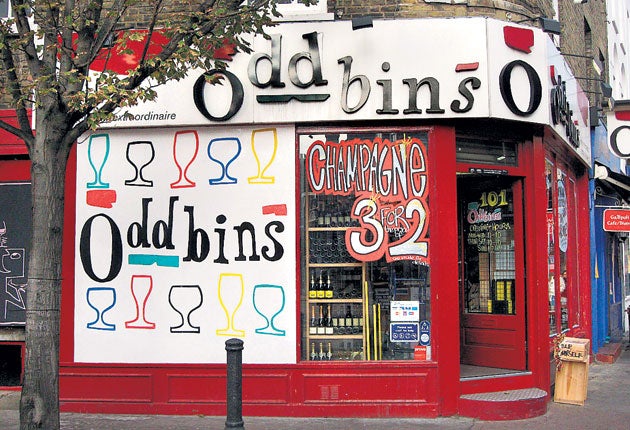
If you're reading this on the way in to work, your heart heavy at the prospect of another day slaving away for The Man, it could be worse. It could be a Bank Holiday. By this time next month, most of us will have enjoyed four extra days off work. Whether that's something to celebrate entirely depends on where you live, what kind of job you do, and whether you have children.
Parents will have realised by now that an unusually late Easter, a one-off royal wedding holiday and Nick Clegg's AV referendum on 5 May will create a "perfect storm" of extended school closures. A four-day working week will be followed by a three-day week, sandwiched between Easter Monday and Kate Middleton's big day. After the May Bank Holiday, primary schools used for polling stations will also be closed on the 5 May, creating another three-day week.
That's pleasant enough for comfortably off couples with kids who work in offices. Not so much fun for single parents, particularly those in leisure-industry jobs or essential services like nursing where bank holidays are working days like any other. Retailers too are feeling unenthused about the holidays, predicting that extended time off will keep shoppers away; if you work for M&S, you stand to lose out both ways on 29 April. Staff there are given the morning off to watch the royal wedding, but must come into the store in the afternoon to help customers buy their party food and booze.
The Federation of Small Businesses, clearly no fans of the lie-in, complain that each bank holiday will cost the ailing economy £6bn, and that April's clustered days off will force some smaller companies to shut down completely; economists say that the days off will wipe a quarter of a percentage point off growth.
But that's only part of the picture. Among the winners this month are hoteliers, who are charging top rates to the extra 500,000 tourists pouring into London for the wedding. One hotel in the capital revealed this week that it will be selling a special package for royalist visitors starting at £36,000, to include private chef and a lecture from a royal biographer. But the tourist dollar won't migrate beyond Greater London.
Happy days too for those Britons – presumably better-off families in conventional office jobs – who are taking advantage of the bank holiday bonanza to take a longer trip abroad: bookings to the Algarve over Easter are up 80 per cent, according to travel operators, a rush also fuelled by the cut prices being offered by the recession-struck Portuguese. (Let's hope those travellers haven't booked with BA, who plan to mark the Easter holiday period with some festive strike action.)
Who would have thought that something as enjoyable as a few extra days off work was so divisive? This would never happen in France. But our reactions are a marker both of how awkwardly out of kilter our work-life balance is in Britain, and also of how tentative our economic recovery is.
Personally, I'll be playing it safe. I haven't got children, but I do work bank holiday Mondays, so, for the remainder of the weekend, a traditional bank holiday pastime will do: I shall be at home, teetering at the top of a ladder, up to my elbows in a DIY project. It will be reassuring to know that my local A&E will be open for business.
Fulham fans need to develop a taste for kitsch
Dismay at Craven Cottage, where Fulham FC's chairman, Mohamed Al Fayed, has erected a statue of his mate Michael Jackson. The rather glitzy, highly coloured statue has embarrassed some fans, who feel that the late King of Pop has no place in their football ground, particularly as he only attended a game once, in 1999. It has, they say, made them "a laughing stock".
But Al Fayed has no regrets about erecting the 7ft-tall, plaster-and-resin tribute. If Fulham fans don't like it, he says, "they can go to hell", or, worse, "they can go to Chelsea". The disgruntled supporters have obviously never heard of kitsch – and neither have Jackson obsessives, who have also piled in with criticism.
Do none of them know art when they see it? Displaying both sentimentality and pathos, Jackson the Cottager (the work may be called that, I can't be sure) is as fine an example of kitsch as Jeff Koons' not dissimilar porcelain sculpture, Michael Jackson and Bubbles, 1988, which, I'm guessing, is worth a few million.
Oddbins' demise is a sad day for 'shelf-talking'
Raise a glass this week to Oddbins, the quirky booze chain that finds itself on the brink of closing its 89 UK stores, despite my lifelong support and custom.
Oddbins was one of the first high-street wine merchants to use what the trade call "shelf-talkers" – little labels pinned to the shelves that outlined in detail why this grape, winemaker and particular vintage might be the bottle for you, a quirk that allowed the embarrassed parvenu to buy wine carefully without enduring a lecture (or a nonplussed stare) from the sales assistant.
If it disappears – and it remains an "if" while a buyer is sought for the chain – the brand will follow Unwins, Threshers and Peter Dominic into the great big recycling bin in the sky, and more of us will be forced, if we lack an independent wine shop nearby, to rely on the supermarket for vino. While our wine will be cheap, it won't come with a little knowledge on the side.

Join our commenting forum
Join thought-provoking conversations, follow other Independent readers and see their replies